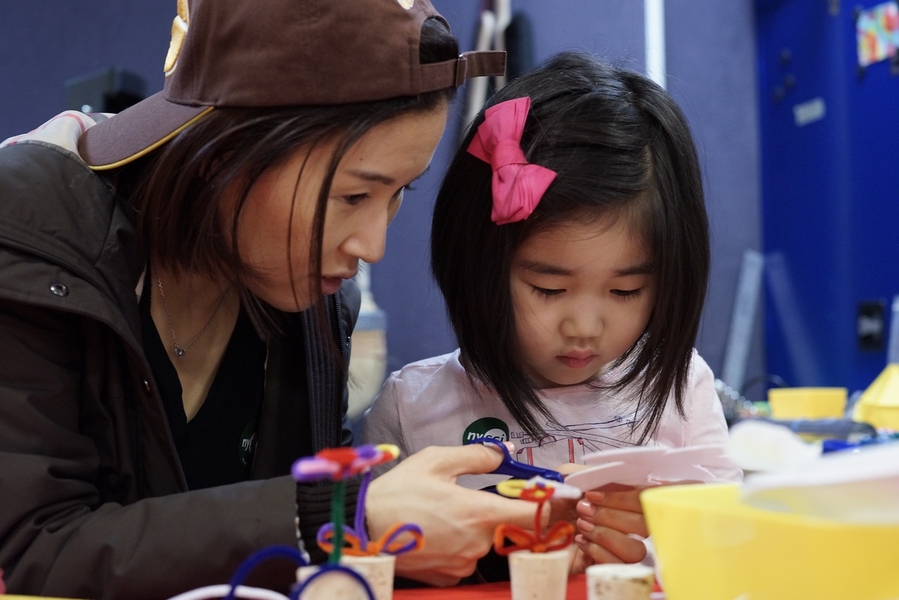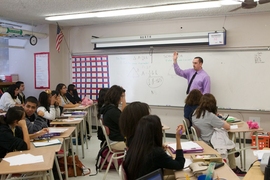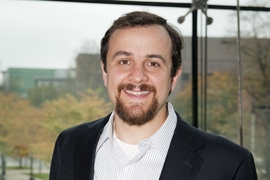The National Science Foundation (NSF) has awarded an early-concept grant for exploratory research to the Teaching Systems Lab at MIT .
MIT will partner with Maker Ed, a national nonprofit, to develop and evaluate practices of embedded assessment in maker-centered learning. The two-year grant, Beyond Rubrics: Moving Towards Embedded Assessment in Maker Education, will support design-based research in middle school science and engineering classrooms.
The San Mateo County Office of Education in Northern California and the Albemarle County Public Schools in Charlottesville, Virginia, have also signed on to co-create embedded assessments for maker-centered curricula. NSF early-concept grants support beginning-stage exploratory research, and the Beyond Rubrics project is considered “high risk, high payoff” because of its potential to apply a novel approach to school-based assessment in maker education and STEM classrooms.
Maker education — an open-ended, process-driven, youth-centered learning approach — has grown in popularity in K-12 education over the past decade. However, one of the greatest challenges of implementing making in schools is the question of how to assess collaborative, interdisciplinary, and iterative making practices and outcomes.
“The assessment science community has been innovating embedded assessments in rich digital learning environments,” says Yoon Jeon Kim, the co-principal investigator of the project. “We can apply this knowledge to envision what seamlessly integrated assessment in maker-centered learning can look like in schools and facilitate educators’ assessment capacities beyond the simple use of rubrics. Our project will be sensitive to the maker education advocates’ concerns regarding assessment by innovatively thinking about assessment in this context without losing the richness and complexity that characterize learning in a maker classroom.”
Stephanie Chang, Maker Ed’s interim executive director, says maker education “continues to grow in thoughtful, diverse, and authentic ways, and as it’s integrated into K-12 environments across the country, assessment is a critical part of the learning equation, not just an afterthought. We at Maker Ed are so excited to invest in this work with three incredible partners and with the support of NSF.”
The participating school districts also recognize the importance of good assessment in maker-centered learning and how this project can be impactful.
“K-12 education today is at a critical crossroads,” says Superintendent Pamela R. Moran of the Albemarle County Public Schools. “One path, steeped in traditional teaching to the test methods, narrows career choices. The other takes us in a different direction by connecting learning to the life skills that prepare students for success regardless of career choice. We need to be able to accurately measure the quality and relevance of student learning. We are grateful to be partnered with Maker Ed and with MIT’s Teaching Systems Lab to develop those measures.”
San Mateo County Superintendent of Schools Anne Campbell said her district is “excited to have the opportunity to partner with Maker Ed and MIT to develop assessment strategies for maker education.”
“We’re especially eager to work with our partners to develop techniques for evaluating learning as it occurs in real time while students are actively engaged in making,” Campbell says.
Justin Reich, executive director of the Teaching Systems Lab, says maker education is closely aligned with MIT’s motto: “mens et manus” (“mind and hand”).
“At MIT we take that seriously as part of our educational philosophy,” Reich says. “Students have powerful learning experiences as they make, tinker, break, struggle, and succeed in spaces that emphasize hands-on, minds-on learning. With this project, we’re committed to experimenting with new assessment tools and approaches that help students and educators better understand the learning that takes place in makerspaces.”
More information about the Beyond Rubrics project is available via the Teaching Systems Lab.









